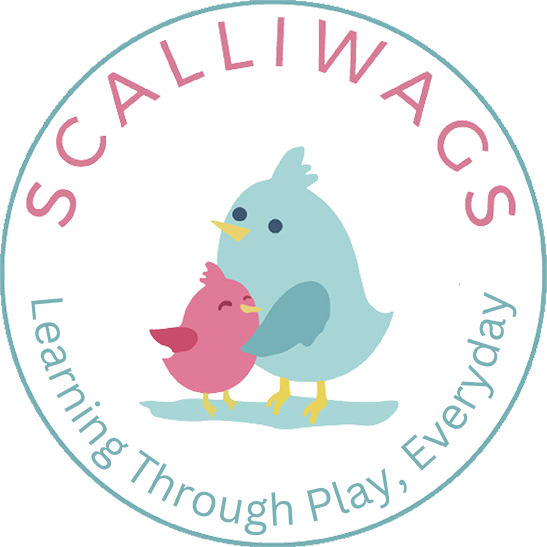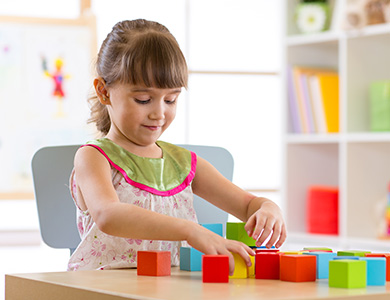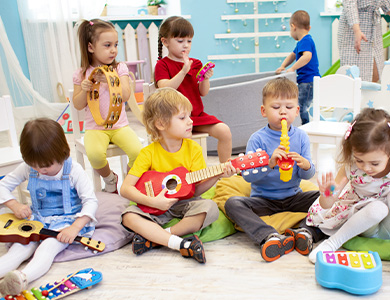Scalliwags Child Care Blog
Learn more about other care in our blog!

At Scalliwags Child Care, we believe that learning should be fun, engaging, and developmentally enriching - especially during the most formative early years of life. Music and movement activities play a key role in our infant and toddler childcare programs.

For young children, early childhood education is about much more than learning letters, numbers, and shapes. It’s a time when they are forming the foundation of who they are and how they see themselves in the world.

As toddlers grow and explore the world around them, play becomes one of the most powerful tools for learning. While solitary play and parallel play are important stages of development, cooperative play marks a major leap in a child’s ability to connect with others. At Scalliwags Child Care, we recognize how essential cooperative play is in helping toddlers develop key social skills and emotional intelligence that will benefit them for a lifetime.

At Scalliwags Child Care, we understand that parents want to feel connected to their child's day, especially when they are still so young. That’s why we integrate technology into our approach to early childhood education—helping parents stay informed and engaged while allowing our teachers to track each child’s growth in a meaningful way.

Choosing the right preschool program is one of the most important decisions you can make for your child’s early education and overall development. At Scalliwags Child Care, we understand how critical these formative years are in building a strong foundation for lifelong learning and success. Our preschool program is designed to equip your child with the skills, confidence, and love of learning needed for a bright future.

Contact Scalliwags Child Care to learn more about the exceptional care and educational opportunities available. Visit us in Wellesley, Needham Heights, or Needham, Massachusetts. Please call (781) 328-1616 to take the first step in providing your toddler with a truly enriching and transformative experience.

Early childhood education is not merely about academic preparation; it's a holistic process that recognizes the unique needs and abilities of each child. By providing a nurturing and stimulating environment, early childhood education programs foster a love for learning, encourage exploration, and promote the development of essential life skills. Whether through infant and toddler childcare, preschool, or pre-kindergarten programs, these early experiences shape a child's personality, self-confidence, and overall well-being.

Toddlers, the curious little beings between the ages of one and three, are constantly exploring and learning about the world around them. One crucial aspect of their development is the acquisition of motor skills, which involve the coordination of muscles and movement. Mastering these skills is essential for toddlers as they grow and interact with their environment.

In today's digital age, screen time has become an inevitable part of our children's lives. Tablets, smartphones, computers, and televisions are now as common in households as any other home appliance.

Child development is a fascinating and intricate process that involves a myriad of factors. It encompasses physical, cognitive, emotional, and social growth, all of which play a pivotal role in shaping a child's overall wellbeing.








